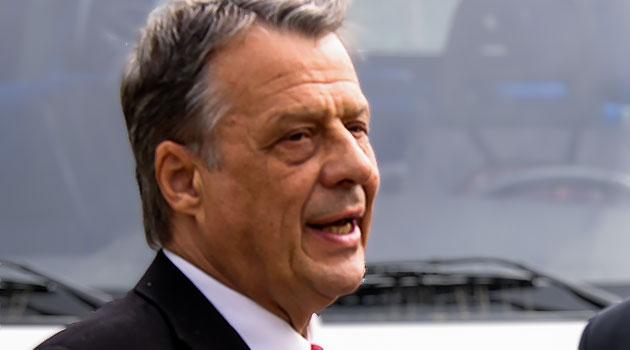Civil society members of the Czech Govt Council for Romani Minority Affairs: Petr Uhl was and will always remain a person who gave many Romani men and women a hope of a more dignified life

Today members of the public will say their final farewells to Mr Petr Uhl in Prague. The commentator, journalist, former dissident, political prisoner and signer of Charter 77 passed away on 1 December at the age of 80.
The funeral today at the crematorium in Prague’s Strašnice quarter is meant to be a celebration of the full life of a brave person, according to Uhl’s family. The final farewell falls symbolically on Human Rights Day, a cause that Mr Uhl defended during the communist regime and after the Velvet Revolution of 1989.
“Petr Uhl was and always will remain a person who gave many Romani men and women a hope of a more dignified life and is engraved indelibly in the memory of all who had the opportunity to follow his life’s work. Some of us even had the honor of meeting him in person. I do believe he certainly left some of his humanity, his goodwill, and his sense of dignity in each of us. He has left behind a memory that will never be forgotten, especially because he was one of a very few people who backed up his words with deeds,” said Jan Husák on behalf of the civil society members of the Czech Government Council for Romani Minority Affairs.
“Very few people deserve genuine recognition for the attitudes they hold over the course of their lives. That is exactly why we feel such a deep pain over the departure of a person who sacrificed his life for others irrespective of what he himself lost in the process. It is difficult for us to find enough words with which to express our gratitude and respect for the efforts Petr Uhl made to defend Romani men and women. He belonged and he always will belong among the important figures whose deeds were full of wisdom and genuine examples of human bravery worthy both of admiration and of emulation. Petr Uhl deserves to remain not just in our memories, but also in our hearts. We thank you! Paľikeras!” Husák said.
“Our sincere condolences and our strength during this painful farewell go especially to his wife Anna and to his children Pavel, Michal and Alexandra,” ends the statement on behalf of the civil society members of the Czech Government Council for Romani Minority Affairs. Mr Uhl and his wife, former ombudswoman Anna Šabatová, were among the Czechoslovak dissident movement’s most distinctive figures.
Because of his convictions, Mr Uhl spent nine years in prison during the “normalization” period. After the collapse of communism he did not stop defending human rights.
He was an activist with Charter 77, which he co-founded and signed, and was also involved in the birth of the Committee for the Defense of the Unjustly Prosecuted. After November 1989 he joined the work of Civic Forum and was elected in 1990 on their ticket as a member of the Left Alternative, becoming a member of the Chamber of Nations in the Czechoslovak Federal Assembly.
At the beginning of the 1990s, he led the Czechoslovak News Agency, and worked for many years as a commentator for the daily Právo. During the 1990s he was a member of the Civic Movement, and from 2002 to 2007 he was in the Green Party, running for the Chamber of Deputies on their ticket, although he was not ultimately elected.
When Czech Prime Minister Miloš Zeman (today President of the Czech Republic) took office as a social democrat, Mr Uhl became the country’s first-ever Government Human Rights Commissioner. He never hid his left-wing positions and backed opinions that were not always popular.
His friends from the dissident era, his colleagues, fellow journalists, diplomats and politicians remember him as a brave, principled person who advocated his opinions irrespective of what regime was in power, irrespective of the consequences, and irrespective of mainstream opinion. However, those who knew him say that he also knew how to respect people who held positions different from his own.
Mr Uhl received many state honors while still alive, such as the Medal of Merit First Degree in 1998, bestowed by Czech President Václav Havel, as well as high honors from France, Germany and Poland. He and Anna Šabatová, who also dedicated her entire life to defending human rights, had three children.